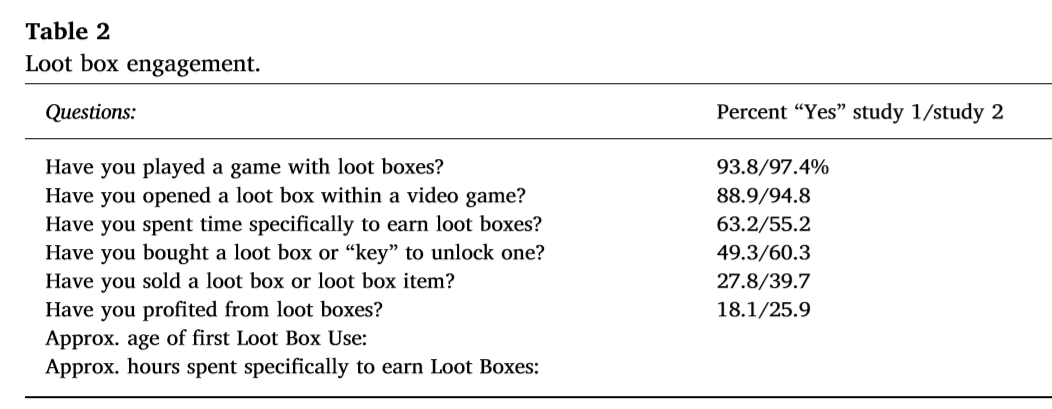A new study from the University of British Columbia highlights a link between an increasingly popular feature of today’s hottest video games and taking risks at the casino.

“Loot boxes” are randomly generated prizes that can be purchased within a game.
WATCH: UBC researchers warn about video game loot boxes

These boxes began appearing in video games in the mid-2000s, allowing players to earn them as rewards, but gamers were usually encouraged to buy them with virtual or real currency.
Gamers don’t typically know what they’re getting in a loot box until they open it.

Get breaking National news
The study says that 60.3 per cent of people surveyed endorsed spending money on “loot boxes,” over half of individuals reported spending around $17.50, with about 10 per cent spending more than $50.
Researchers tested the relationship between gaming involvement and engagement with loot boxes to their associations with gambling and gambling-related thoughts.
Gamers were asked to assess themselves based on statements such as, “I frequently play games longer than I intend to so I can earn loot boxes” or “I have bought more loot boxes after failing to receive valuable items.”
Researchers conducted two studies. The first found that 15.3 per cent of gamers said they spent more than three hours per week specifically to earn loot boxes, and 5.56 per cent spent more than six hours per week. In the second study, 15.5 per cent reported spending three or more hours a week and around six per cent spent more than six hours per week.
- Snowmobilers fall through ice, bodies recovered days later after lake refreezes: RCMP
- Vancouver city councillor apologizes for calling fellow members ‘drug users’
- Dozens of bus shelters vandalized across Metro Vancouver
- B.C. business leaders criticize budget, saying province is in ‘an entrepreneurial drought’
When researchers analyzed the scores, they found a correlation between excessive engagement with loot boxes and measures of problem gambling.
WATCH: (Aired Oct. 30, 2018) New research suggests flashing casino lights promote problem gambling

Overall the study found that 79.3 per cent of people surveyed agreed that loot boxes feel like betting, while 86.2 per cent agrees that “loot boxes” are a form of gambling.
“Our findings are consistent with voiced concerns that loot boxes overlap with gambling, and support the need for regulators to consider gambling-like mechanisms within video games,” Gabriel Brooks of the UBC Centre for Gambling Research said.
According to the study, about 90 per cent of participants reported that they had opened a loot box in a video game and more than half of them reported spending money on them.








Comments
Want to discuss? Please read our Commenting Policy first.